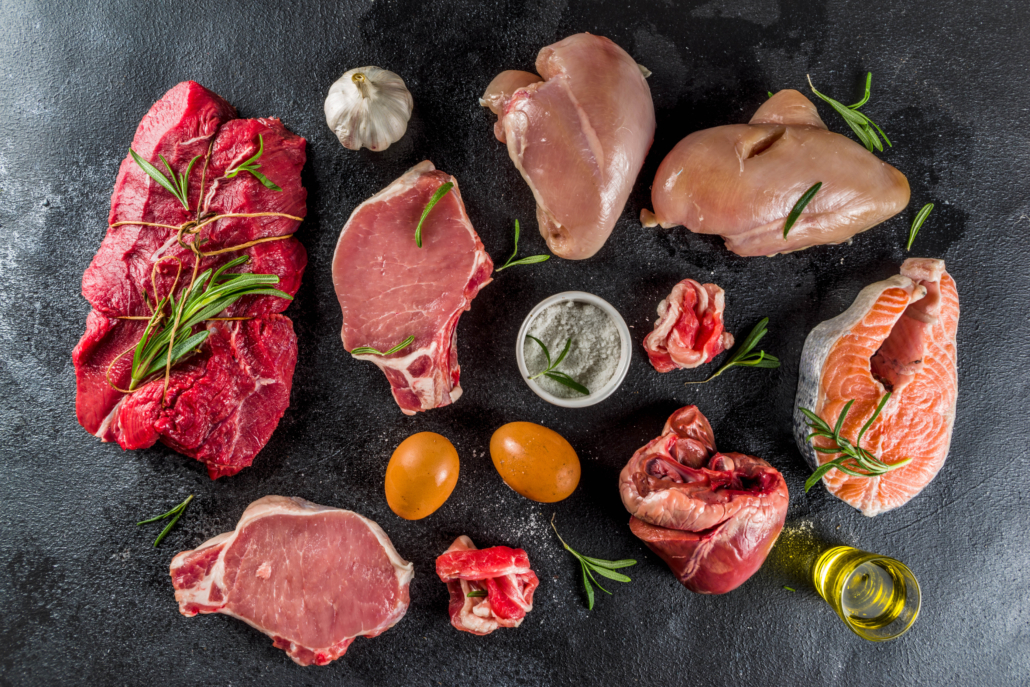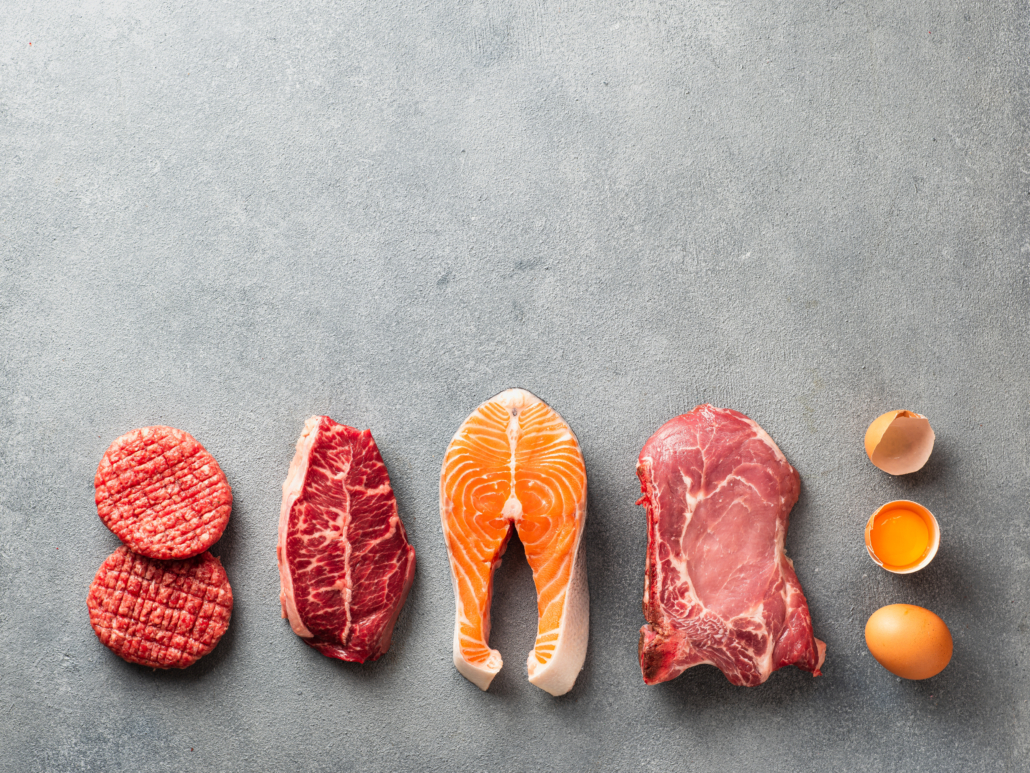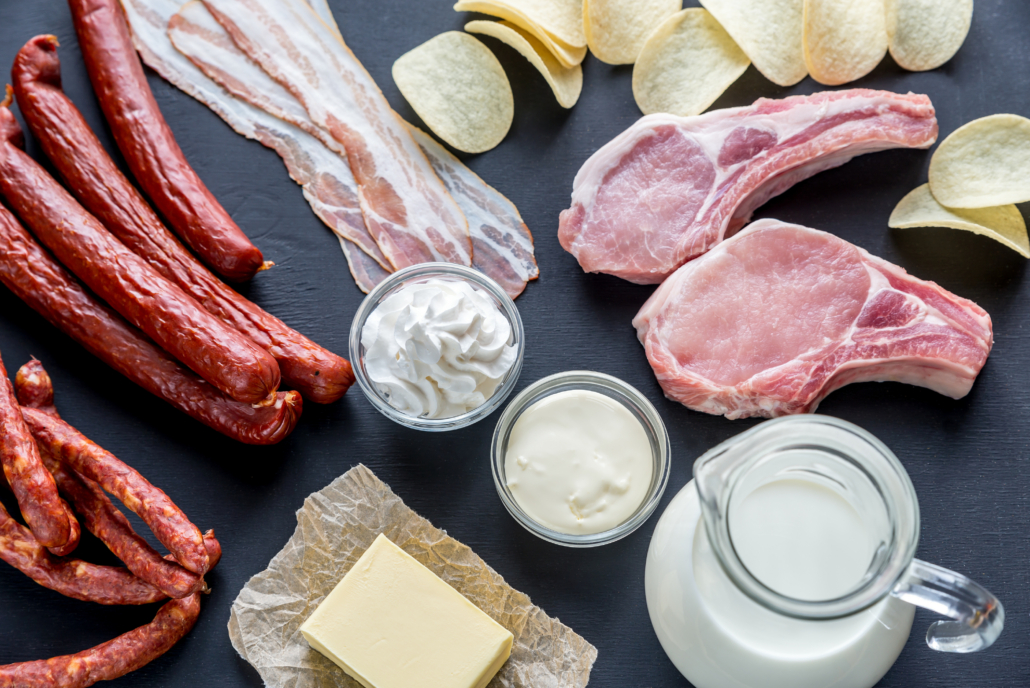We include products in articles we think are useful for our readers. If you buy products or services through links on our website, we may earn a small commission.
The Lion Diet Guide: Benefits, Risks, and Tips
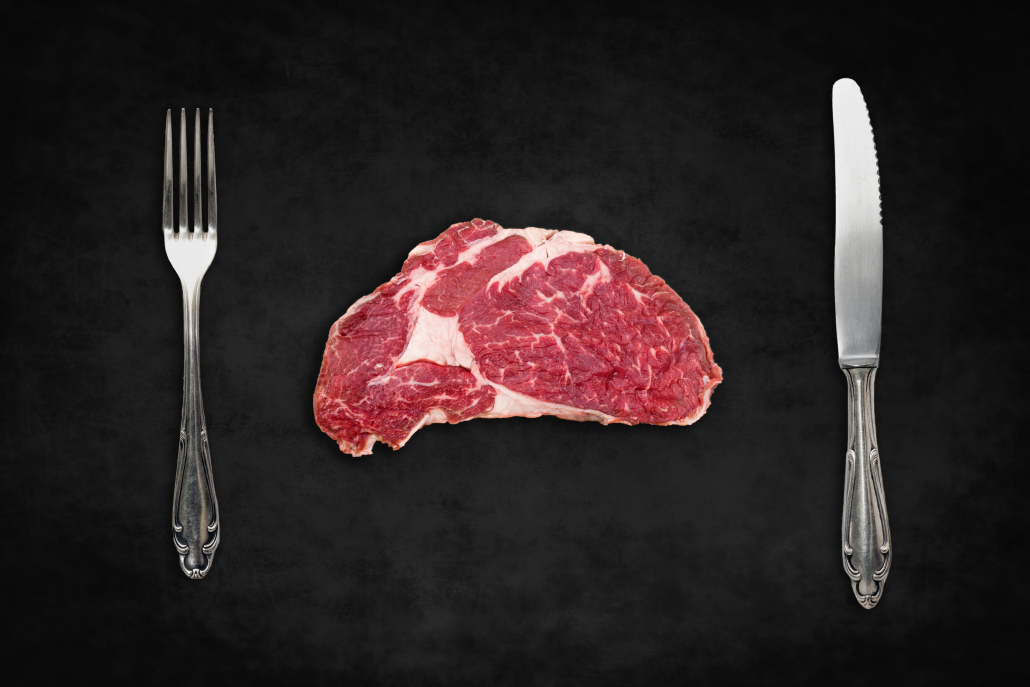
The lion diet, also known as the “carnivore elimination diet” or “beef, salt, water” approach, was popularized by Mikhaila Peterson and her father, popular psychologist Jordan Peterson.
As the most restrictive version of the carnivore diet, the lion diet allows only the meat of ruminant animals, usually beef. The only other additions to this diet are salt and water.
According to Mikhaila Peterson, now a popular health and wellness podcaster, thousands of people following the lion diet report complete remissions of autoimmune disorders, digestive illnesses, and psychological problems. While also experiencing powerful improvements in physical and cognitive health.
Despite these positive reports, many nutritionists question the safety and sustainability of the lion diet.
In this article, we’ll explore the origins of the lion diet, the clinical science behind its possible benefits, along with risks to watch out for and how to avoid them.
Table of Contents
Origins of the Lion Diet
Mikhaila Peterson developed the lion diet as an elimination protocol to help her overcome numerous chronic ailments.
By age 22 she was on over 10 medications to help with various psychological and physical problems: She had been on antidepressants since 5th grade. By 17, both her hip and ankle joints had completely deteriorated due to juvenile rheumatoid arthritis. And by 22 she was diagnosed with bipolar type 11, hypersomnia, lyme disease, psoriasis and eczema.
Early on she didn’t believe that diet could treat serious issues. But that changed after she cut out gluten to heal a rash.
This small victory led to experimentation with the ketogenic diet. After some mixed results, she came across the story of a woman who used an all-meat carnivore diet to cure lyme disease. Out of desperation she went all in.
Now, after strict adherence, she claims that all her symptoms are in remission.
Witnessing how successful the lion diet was for his daughter, Jordan Peterson gave it a try. On the popular Joe Rogan podcast Peterson reported, “I lost 50 pounds. My appetite has probably fallen by 70%. I don’t get blood sugar dysregulation problems. I need way less sleep.” He also claimed that his anxiety and depression disappeared, he felt mentaly sharp,“And my gum disease is gone. Like, what the hell?”
Lion Diet as Elimination Diet
The lion diet is a way to remove all problematic foods while sustaining your body with a single nutrient-dense food. This makes you the subject and administrator of your own nutritional study.
The idea is to pay close attention to your body, wait until symptoms abate, and slowly add in other healthy whole foods. You’ll be able to see exactly how they affect you.
When considering that most doctors receive less than 15 hours of nutritional instruction, it’s no wonder that this simple approach to reclaiming your health might seem radical.
There are no pokes, pricks, and procedures that pharmaceutical companies and hospitals can profit from. And you can’t patent a diet.
Yet many studies have shown that elimination diets are clinically effective for inflammatory bowel diseases, IBS, and numerous allergies.
Other studies have found that diet is a key factor in numerous conditions like rheumatoid arthritis, chronic skin ailments, and depression. 6 7
Eliminating dietary variables for these issues puts you back in the driver’s seat of your metabolic health.
In the long term, the lion diet should be modified to meet your micronutrient needs.
Ancestral Eating
Though the lion diet is the most restrictive version of a carnivore diet meal plan, eating only meat isn’t as extreme as it might sound at first.
New research shows that for nearly 2 million years of human dietary evolution, our cavemen ancestors were hyper-carnivorous apex predators fueled almost exclusively by the meat of large animals. 8
Essentially none of the vegetables, nuts, and fruits you see at the grocery store existed. Grains only came on the scene some 7,000 years ago.
Yet, since the dawn of agriculture, human health has gone down the drain. Diabetes, heart disease, cancer, osteoporosis, and other “diseases of civilization” are skyrocketing.
These diseases are essentially non existent for traditional cultures. And they correlate with the global roll out of our modern Standard American Diet. This way of eating is loaded with highly processed meats and grains, added sugars, and industrial oils. All highly inflammatory foods.
What we think of as normal foods are truly an extreme departure from the types of foods we’ve evolved to eat.
By eliminating the foods our ancestors didn’t eat, and consuming only nutrient-rich meat, a lion diet is a way to hit the metabolic reset button.
Foods You Can and Can’t Eat on a Lion Diet
The table below outlines the short list of foods you can and can’t eat on a lion diet menu.
Though all ruminant animal meat is allowed, because of convenience and simplicity, most lion dieters eat an all beef diet.
An all beef diet enhances the elimination protocol. Once symptoms subside you can gradually add in other meats, one at a time.
| Ruminants | Pork | Poultry | fish | seafood | Organ meats | Wild meats | Eggs | Dairy | Fruits and Veggies |
| Beef Bison Goat Lamb | x | x | x | x | Liver Heart Sweetbreads kidney bone marrow spleen | Elk Venison Antelope | x | x | x |
Lion Diet Benefits
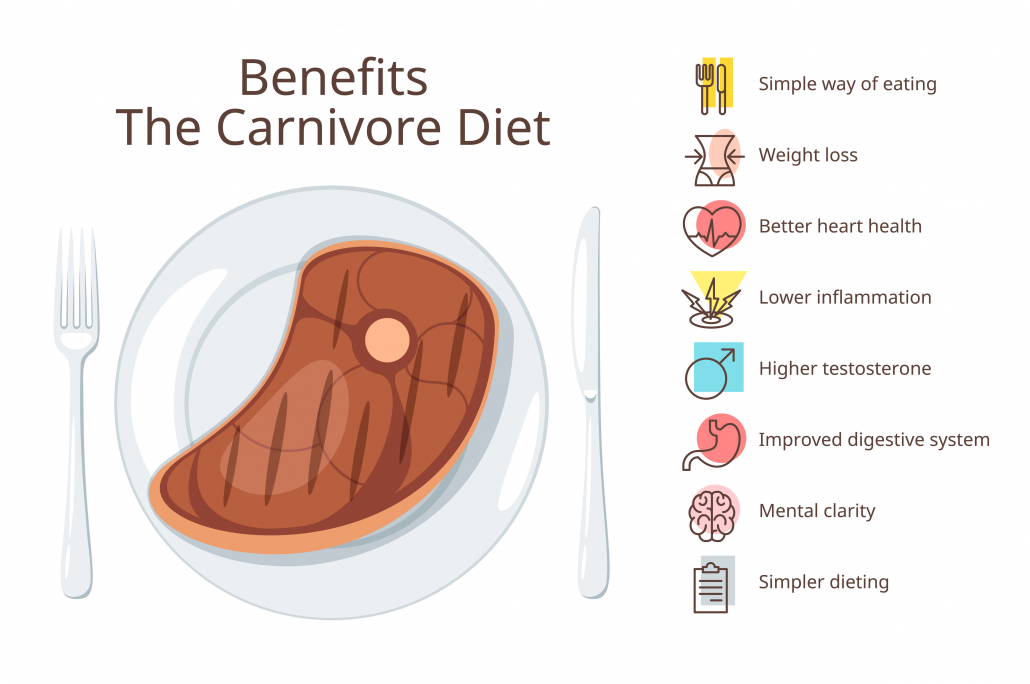
To date, the most extensive study on the Lion diet was conducted by Harvard university and published in 2021.
This large-scale survey gathered data from 2,029 people eating the lion diet for at least six months. [41]
Researchers Dr. Belinda Lennerz and Dr. David Ludwig concluded: “Contrary to common expectations, adults consuming a carnivore diet experienced few adverse effects and instead reported health benefits and high satisfaction.” [1]
Lion diet benefits included
- 93% improved or resolved obesity and excess weight
- 93% improved hypertension
- 98% improved conditions related to diabetes
- 97% improved gastrointestinal symptoms
- 96% improved psychiatric symptoms
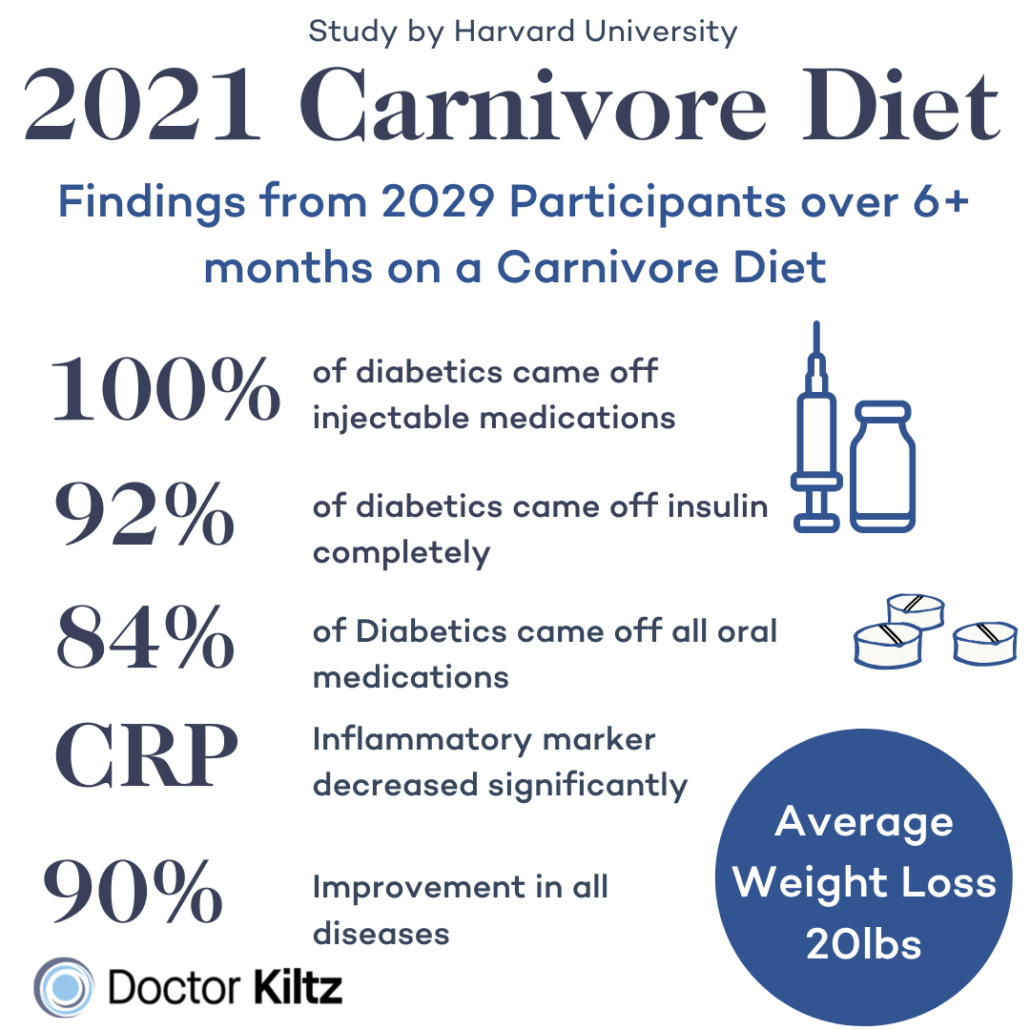
In addition to the Harvard carnivore study, we have extensive data on the health effects of “very low carb diets” (VLCD). And there’s nothing lower than eating only meat and zero carbs.
Benefits of a Very Low Carb Diet
The popularity of ketogenic diets–of which the lion diet is a version–has soared. Though the science is still coming out, clinical studies have already found that very low carb diets can provide numerous benefits including:
- Improvements to blood lipid levels. [2]
- Improved insulin sensitivity. [3]
- Reduced severity of type 2 diabetes and fatty liver disease
- Reduced symptoms and remission of PCOS [4]
- Enhancing cancer treatments [5]
- Slowing the progression of neurological disorders, epilepsy, Alzheimer’s, and Parkinson’s disease. [6]
- Significant weight loss [7]
- Reduced carb addiction and cravings for unhealthy processed foods [8]
- Reduced inflammation and increased immunity [9] [10]
- Greater absorption of fat-soluble vitamins (K, D, E, etc). [11]
- Protection of the glycocalyx. A membrane that coats the surface of every cell, and is implicated in many areas of health. Yet easily damaged by sugar intake
Let’s take a deeper look at some of these carnivore diet benefits.
Resets Gut Microbiome and Improves Gut Health
Many people turn to the lion diet specifically to target digestive issues, often reporting powerful positive results.
These results are supported by studies looking at the effects of general keto diets on the gut microbiome.
In 2020 a study published in Cell found that VLCD changed and improved the gut microbiome in ways that reduced bodily inflammation.
The researchers were so impressed that they suggested a VLCD diet as a therapy for autoimmune disorders like leaky gut. [50]
Other studies found that VLCDs benefited gut health in ways that reduced symptoms of multiple sclerosis and epilepsy. [51] [52]
Eliminates Plant Toxins and Antinutrients
We’ve been told that plant foods, specifically veggies, are the key to dietary health. But the truth about plants and health is far more complex.
Like humans, plants have a primary goal of surviving and reproducing. To these ends, they’ve evolved an arsenal of chemicals. These include naturally occurring toxins and compounds that benefit the plants but are harmful to our own bodies.
These compounds include plant toxins and antinutrients like phytic acid, oxalate, phytohormones, and gluten. These antinutrients can cause mineral depletion, hormone imbalances, and even birth defects.
Phytic acid, for instance, is found in many grains and legumes. It can prevent your body from absorbing key nutrients like calcium, zinc, magnesium, iron, and copper while inhibiting digestive enzymes.
Phytoestrogens found in soy have been associated with decreased fertility in both men and women. [2] [3] Scientists have theorized that these fertility-decreasing substances exist to reduce the populations of animals–including humans–that would otherwise eat them. [4]
A lion diet completely eliminates exposure to these potentially harmful chemicals.
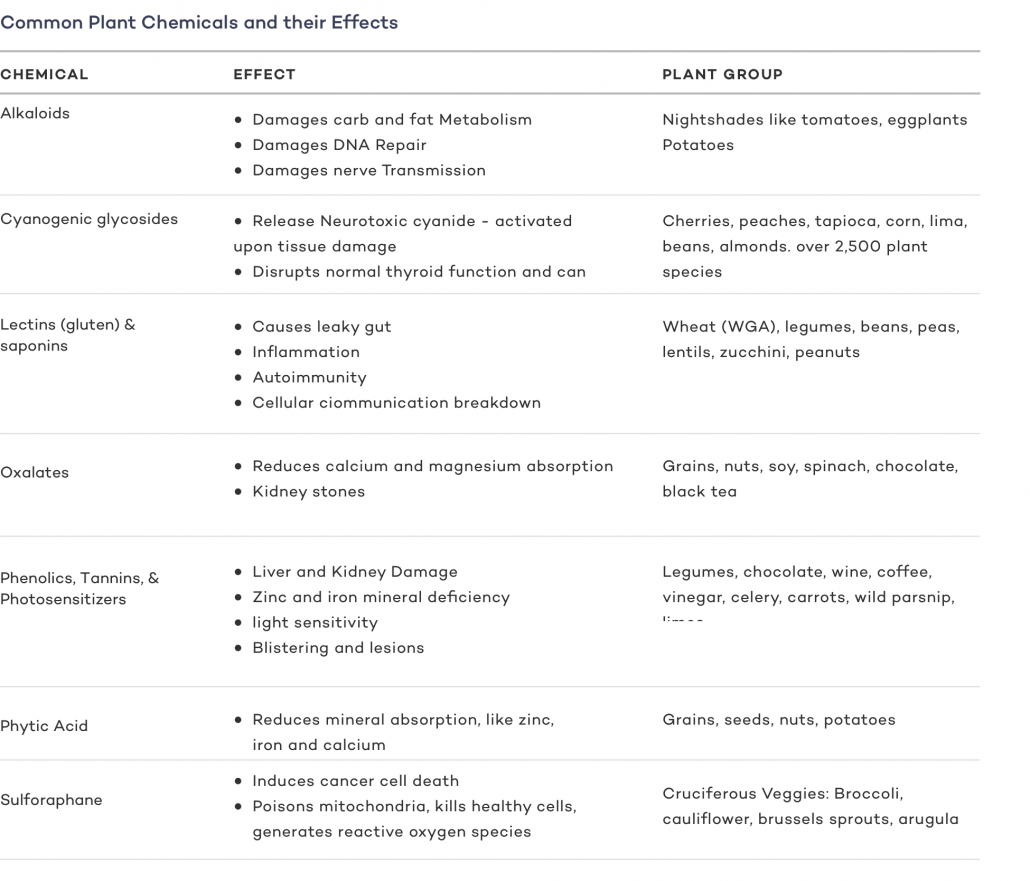
Reduces Inflammation
Like other very low-carb diets, a lion diet can reduce markers of inflammation like C-reactive protein and IL-6. The factors contributing to reduced inflammation include: [16] [17] [18]
- Eliminating irritating plant-toxins
- Improving insulin sensitivity
- Increasing intake of omega-3 fats and stable saturated fat
- Improving gut/digestive health which is closely connected with inflammatory responses
Numerous studies reveal that VLCDs can significantly decrease inflammation. [19] [20] [21]
A 2013 study in the journal Metabolism comparing a high-fat, low-carb diet to low-fat, high-carb diet found that after 12 weeks, high-fat dieters had lower markers of systemic inflammation.[22]
Though a lion diet is not necessarily high-fat, a well-formulated lion diet will select for the fattiest cuts of meat–more on this later.
Reduces Fiber
Most of us have heard the myth that fiber is essential. Newer research suggests that the opposite may be true. Fiber can, in fact, do more harm than good.
Fiber can be abrasive and fermentable, leading to irritation, inflammation, and harmful bacteria overgrowth.
In 2012 a study in the World Journal of Gastroenterology investigated how reducing fiber affected people with chronic constipation.
Surprisingly, the study found that participants who ate high fiber reported no change in their condition. The participants who completely eliminated fiber showed a significant reduction in gas, bloating, and straining while increasing their frequency of bowel movements! [14]
A 2009 study found that women who ate a high fiber diet had lower hormone levels and a higher incidence of anovulation, a common cause of infertility. 11
An extensive 2007 review of all previous studies found that there is no clinical support for the protective role of fiber against colorectal diseases. 12
Lion Diet Risks
Though the lion diet can offer a vital dietary reset, there are some risks to be aware of. That said, many people report long term success. If eating fatty meat with some supplemental organ meats, the risks can be virtually eliminated.
Here are some of the risks:
- Protein poisoning
- Vitamin deficiencies
- Excess phosphorus
- Reduced thyroid function
It’s important to note that the lion diet is an effective elimination diet for most people. The risks listed above are most likely to show up in the long term.
The following tips are here to help you in the short term while setting you up for long term carnivore diet success.
Avoiding Protein Poisoning
Getting more than 35% of your calories from protein can result in protein poisoning.
This occurs because your liver loses the ability to upregulate urea synthesis needed to process high protein loads.
Symptoms of protein poisoning include hyperaminoacidemia, hyperammonemia, hyperinsulinemia nausea, diarrhea, and rare cases, death. [32]
The best way to protect against protein poisoning on the lion diet is to choose fatty cuts of meat like ribeye and short ribs.
Though a bit of a gray area, you may also want to increase fat content by adding beef tallow.
The ideal fat to protein ratio on a keto diet (remember that a lion diet is a version of keto) is 3:1.
That means that if you consume a 2000 calorie diet you’re getting 1500 calories from fat and 500 from protein.
Remember that 1 gram of fat has nearly 2x the amount of calories as protein. So to get a 3:1 ratio in terms of calories, you’ll only need to eat a 2:1 fat-to-protein ratio in term of grams.
Vitamin Deficiencies
Ruminant meats are some of the most nutrient-dense superfoods on earth. And it is possible to fulfill all your nutrient needs by eating just meat.
But some cuts lack essential vitamins and minerals. This is especially true for the muscle meats that most people focus on. In fact, people like Weston A. Price, who studied the diets of indigenous peoples, found that they focused on the fat and organs and often threw the muscle meat to the dogs.
To avoid nutrient deficiencies on any version of the carnivore diet it is important and even essential to incorporate organ meats.
Beef spleen is loaded with vitamin C, and other organ meats like beef brain and beef liver offer significant amounts of zinc and vitamin A.
Getting Organ Meats in Your Diet
Sourcing and cooking high-quality fresh organ meats can be challenging.
One way to get the benefits of organ meats without the hassle is through quality organ meat supplements.
Desiccated liver, and multi-organ supplements provide a tangible energy boost. It’s fair to think of them as a natural multivitamin, but unlike the processed stuff, your body actually absorbs them, especially when combined with a diet high in animal fats.
Though not officially a part of the lion diet, keto bone broth can help with hydration and replenish electrolytes and minerals while reducing instances of carnivore diet constipation, and carnivore diet diarrhea that can be common during the transition.
Excess Phosphorus
Phosphorus is an essential nutrient, but a lion diet means eating over 1000mg of phosphorus a day. This is considered a clinically high amount.
Studies on high phosphorus intake and health outcomes show mixed and inconclusive results.
When looking at all available studies, the general consensus is that if you’re healthy, high phosphorus intake is likely fine.2
Thyroid
Some studies show that long-term ketosis can lead to reduced T3 or thyroid hormone. [2] [3] [4]
One of the reasons for this is that sugar/carbs in your diet signals to your metabolism that you’re in a carbohydrate rich environment. And where fruits grow, so do many animals. So the full message is that you’re in a calorically rich environment.
The contrasting absence of carbs tells your body that you’re in a low caloric environment. The body can respond by slowing your metabolism. This causes the body to retain your body fat in preparation for metabolization into fuel.
One way to prevent this is to gradually re-introduce carbs in the form of low-toxin root vegetables and some low-toxin fruits like berries.
Fasting Hyperglycemia
When carbs are eliminated, the body can go into a “famine” state. In this state it increases insulin resistance. At the same time, it increases gluconeogenesis (the synthesizing of glucose from protein). These changes are a way for your body to conserve energy and store it as fat.
Together these changes can result in elevated blood sugar–a state called “fasting hyperglycemia. [5] [6] [7]
Though many people report thriving long-term on keto and carnivore diets, some people may want to avoid these concerns by adding in some fruit and low-toxicity tubers.
Lion Diet Shopping List
A lion diet shopping list is usually pretty short. Ruminant animal meat, salt, and water, that’s it!
| Food | # of Meals | Lbs per Meal | Total lbs to buy |
| Boneless short ribs | 2 | 1 | 2 |
| Tri-tip roast | 4 | 1 | 4 |
| Beef back ribs | 2 | 1 | 2 |
| Ribeye Steak | 4 | 1 | 4 |
| 80/20 Ground Beef | 2 | 1 | 2 |
1 Week Sample Meal Plan: Lion Diet
| Day 1 | Day 2 | Day 3 | Day 4 | Day 5 | Day 6 | Day 7 | |
| Lunch | Boneless short ribs | Ribeye steak | 80/20 ground beef | Ribeye steak | Tri-tip roast | Ribeye steak | Beef back ribs |
| Dinner | Tri-tip roast | Beef back ribs | Tri-tip roast | Boneless short ribs | 80/20 ground beef | Boneless short ribs | Tri-tip roast |
Lion Diet: The Bottomline
The lion diet is an all-meat elimination diet made popular by podcaster Mikhaela Peterson and her pop-psychologist father, Jordan Peterson.
It’s an extremely simple diet that calls for eating only the meat of ruminant animals, salt, and water.
Thousands of people have reported using the diet to overcome various chronic ailments and diseases, though no formal clinical studies have been done to date.
The lion diet is intended to be a metabolic reset, but even long-term lion dieters report thriving on only meat, salt, and water. Potential vitamin deficiencies can be alleviated by consuming more fat and supplementing with vitamin-rich organ meats.












